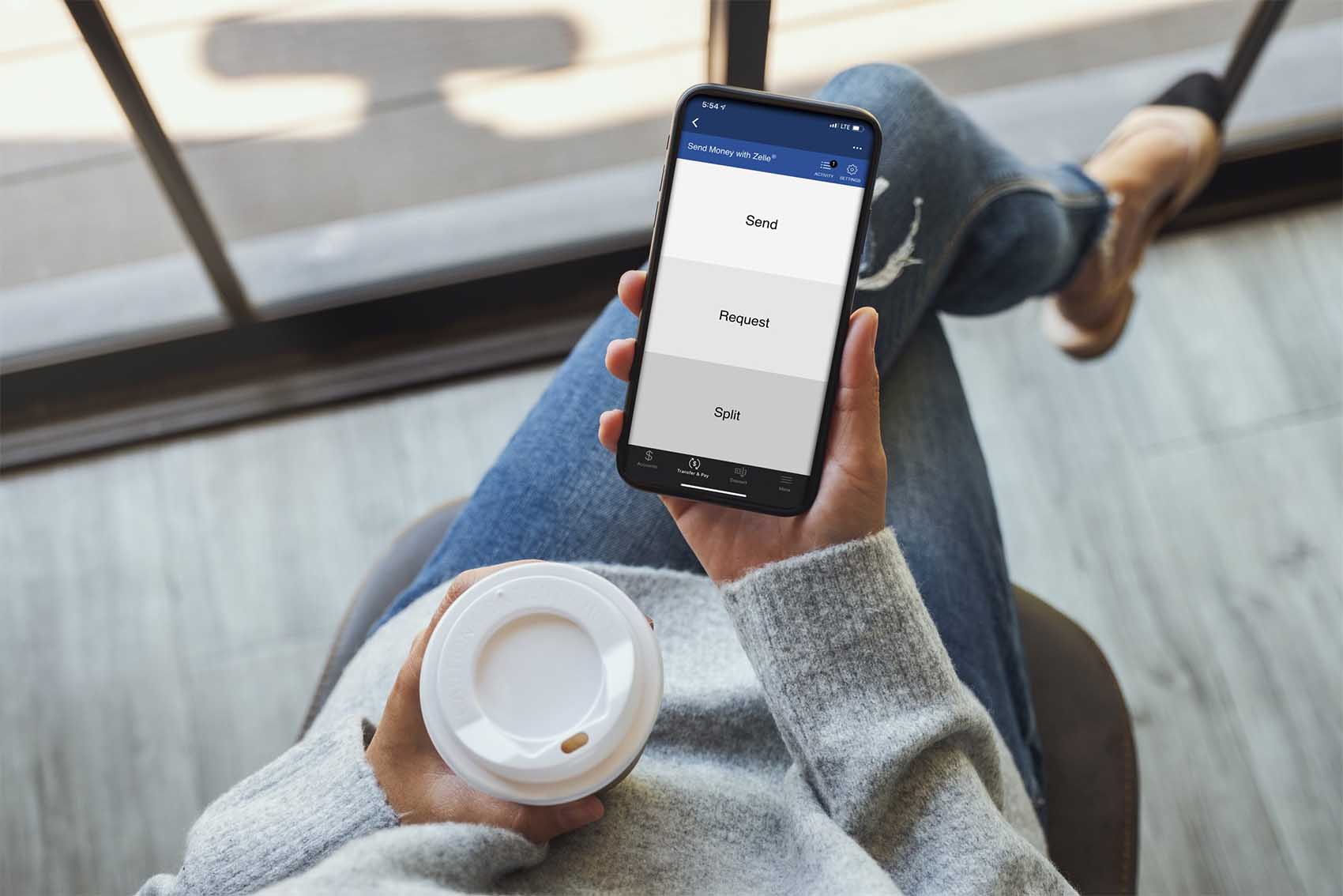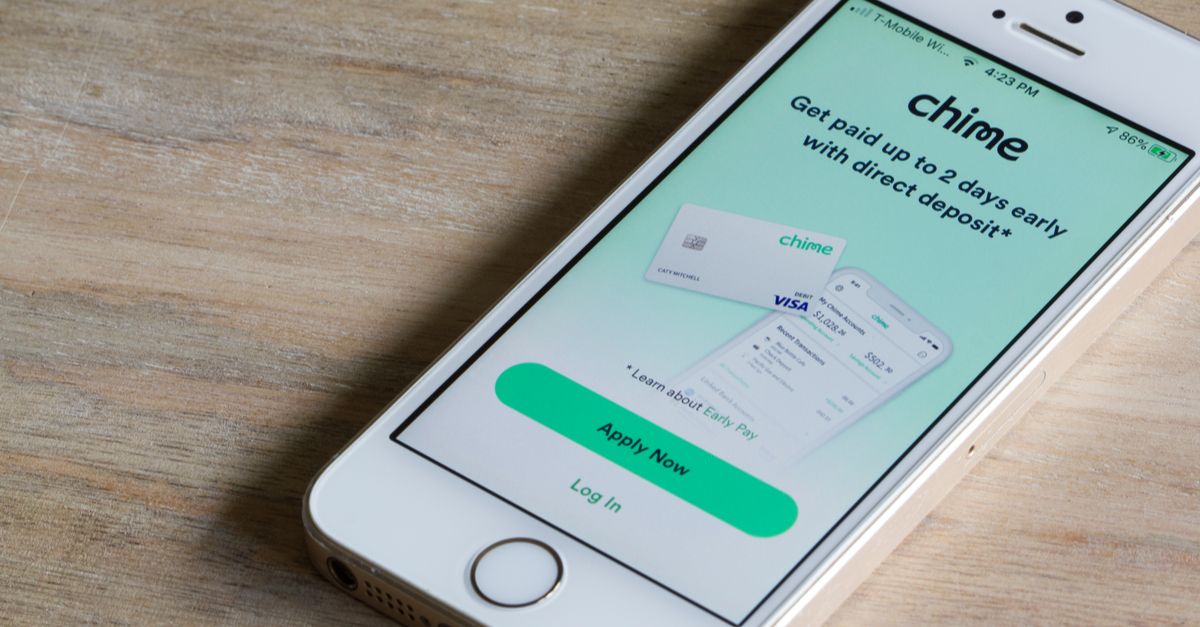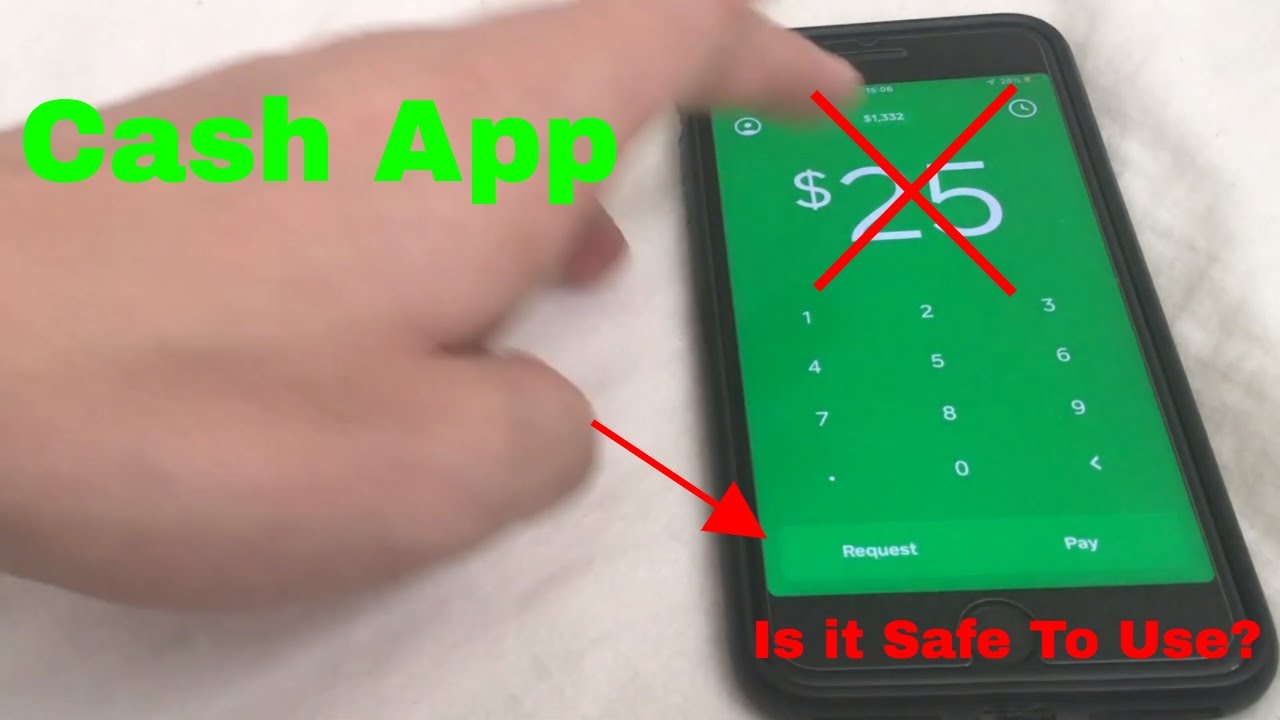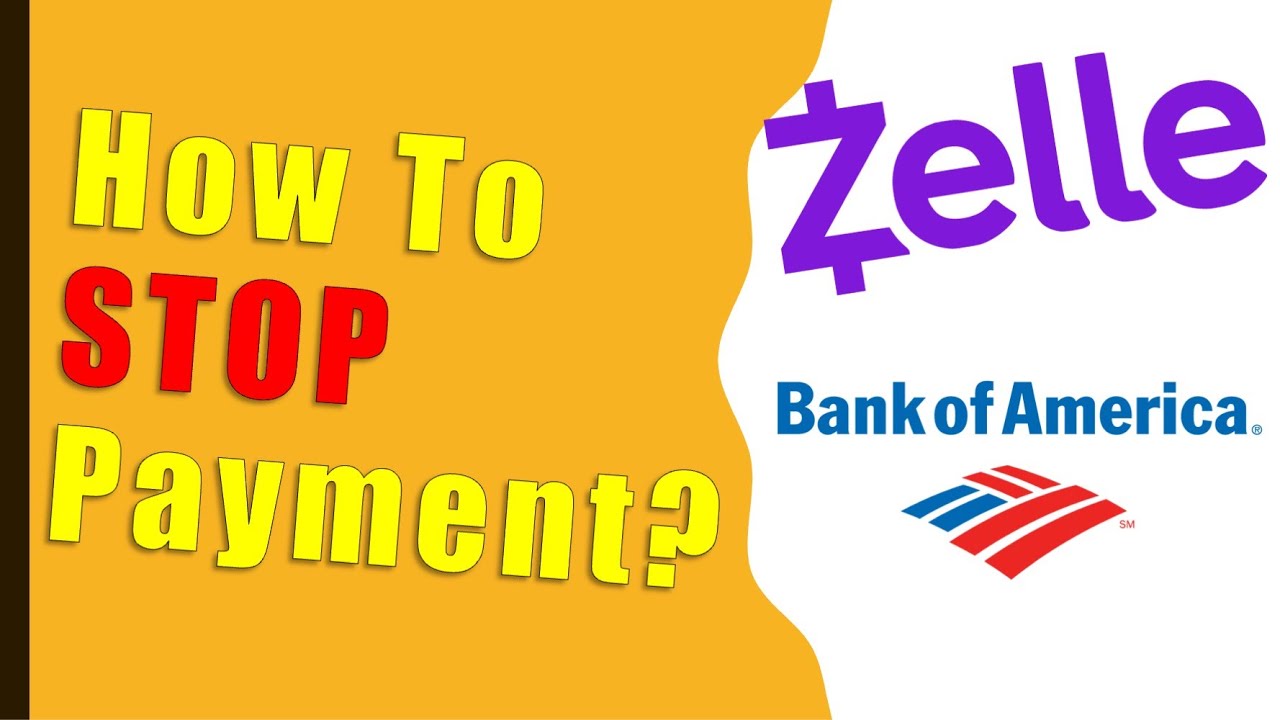Introduction
Welcome to the digital age, where almost everything can be done from the comfort of our smartphones or online platforms. With the advancements in technology, banking has also become conveniently accessible through online and mobile banking apps. However, with this convenience comes the crucial need for security precautions.
While online and mobile banking offer great convenience and flexibility, it is important to understand and implement measures to protect our financial information from potential threats. Mishandling security precautions can expose our sensitive data to fraudsters and hackers, compromising our hard-earned money.
In this article, we will discuss security precautions that should not be taken while using online or mobile banking apps. By understanding these pitfalls, we can safeguard our financial well-being and ensure a secure banking experience.
Remember, the purpose of this article is to educate and raise awareness about security precautions. It is important to note that each individual’s circumstances may vary, and consulting with financial professionals or experts can provide personalized guidance based on your specific needs and situation.
Without further ado, let’s dive into the potential mistakes people make when it comes to securing their online and mobile banking activities.
Using Weak or Easy-to-Guess Passwords
One of the most common and dangerous security mistakes that people make while using online or mobile banking apps is using weak or easy-to-guess passwords. Your password is the key to accessing your financial information, and a weak password can make it easier for hackers to gain unauthorized access to your accounts.
Using passwords such as “123456” or “password” might be convenient to remember, but they are extremely vulnerable to hacking attempts. It’s important to create a strong, unique password that includes a combination of uppercase and lowercase letters, numbers, and special characters.
Additionally, it is advisable to use a different password for each online or mobile banking app you use. This practice ensures that if one account is compromised, the rest of your accounts remain secure. Remember, a chain is only as strong as its weakest link, and that applies to your passwords as well.
Moreover, avoid using personal information, such as your name, birthdate, or address, in your passwords. Hackers can easily gather this information through social engineering or by accessing your publicly available information. Instead, consider using a password manager to generate and store complex passwords securely.
Regularly updating your passwords is another essential security measure. Periodically changing your passwords helps protect your accounts from being compromised due to security breaches or leaked passwords from other websites or applications.
By using strong, unique passwords, regularly updating them, and relying on a reputable password manager, you significantly reduce the risk of unauthorized access to your online and mobile banking accounts.
Sharing Account Information with Others
One of the biggest security mistakes you can make while using online or mobile banking apps is sharing your account information with others. Your financial information should be kept confidential and should not be shared with anyone, including friends, family members, or even customer support representatives.
Sharing your account information, such as your username, password, or PIN, can expose your accounts to potential fraud or unauthorized access. No matter how trustworthy someone may seem, it is crucial to maintain a strict policy of not sharing your sensitive banking details with anyone.
It’s also important to be cautious of phishing scams, where scammers impersonate bank officials or send fraudulent emails or messages asking for your account information. Banks will never ask you to share your login credentials or personal information through email, text messages, or phone calls. Always verify the authenticity of any platform before providing any sensitive information.
If you suspect that your account information has been compromised, it is essential to take immediate action. Notify your bank or financial institution as soon as possible and change your passwords to prevent further unauthorized access. Stay vigilant and regularly monitor your account activity to spot any suspicious transactions or activities.
Remember, the responsibility of safeguarding your account information lies with you. Avoid sharing your account details and educate yourself about common phishing scams to protect your online and mobile banking accounts from potential threats.
Neglecting Software Updates and Patches
Another critical security mistake that many people make when using online or mobile banking apps is neglecting software updates and patches. These updates are not merely annoying reminders; they play a crucial role in safeguarding your financial data.
Software updates and patches often include important security fixes and enhancements that address vulnerabilities and loopholes in the system. Ignoring these updates can leave your devices and banking apps susceptible to security breaches and unauthorized access.
Cybercriminals are always on the lookout for weaknesses in software and operating systems. They actively exploit vulnerabilities to gain access to sensitive information, including your online banking credentials. By neglecting software updates, you are essentially leaving the door wide open for potential threats.
It is essential to regularly update your operating system, web browsers, and mobile banking apps to the latest versions. These updates are designed to address security vulnerabilities identified by developers and security experts. By keeping your devices and apps up to date, you ensure that you are benefiting from the latest security features and patches.
Enabling automatic updates can be a great way to stay on top of these essential software updates. Automatic updates ensure that you receive the latest security fixes as soon as they are released, without having to manually check for updates.
Remember, installing updates may require your device to restart, temporarily inconveniencing you. However, the inconvenience is worth it when you consider the potential consequences of neglecting software updates, including compromised security and financial losses.
Make it a habit to regularly check for and install software updates and patches, and you’ll be taking a significant step towards enhancing the security of your online and mobile banking activities.
Logging in to Mobile or Online Banking Apps on Public Wi-Fi Networks
One security mistake that should be avoided at all costs while using online or mobile banking apps is logging in on public Wi-Fi networks. While public Wi-Fi may seem convenient, it poses a significant risk to the security of your financial data.
Public Wi-Fi networks are generally unsecured, making them susceptible to interception by hackers or eavesdroppers. When you connect to a public Wi-Fi network, such as in a coffee shop or airport, your data can be easily intercepted, including your login credentials and sensitive financial information.
Hackers can use various techniques, such as packet sniffing or man-in-the-middle attacks, to capture the data transmitted between your device and the Wi-Fi network. This can lead to unauthorized access to your online banking accounts and potential financial loss.
To ensure the security of your online and mobile banking activities, it is crucial to avoid logging in to your accounts on public Wi-Fi networks. Instead, use a trusted and secure network, such as your home Wi-Fi or a personal mobile data connection, to access your banking apps.
If you find yourself in a situation where you must perform a financial transaction or access your banking information while on the go, consider using a virtual private network (VPN). A VPN encrypts your internet connection, protecting your data from unauthorized access on public Wi-Fi networks.
Remember, the convenience of public Wi-Fi should never come at the expense of compromising the security of your financial data. Always prioritize the use of secure networks and take necessary precautions to protect your online and mobile banking activities.
Clicking on Suspicious Links or Downloading Unknown Apps
One of the most dangerous security mistakes you can make while using online or mobile banking apps is clicking on suspicious links or downloading unknown apps. Cybercriminals often use deceptive tactics to trick unsuspecting individuals into providing their sensitive banking information or installing malicious software.
Phishing emails and text messages are common methods used by hackers to lure victims into clicking on malicious links. These messages may appear legitimate, mimicking the design and branding of your bank or financial institution. However, they aim to deceive you into providing your login credentials or personal information.
It is crucial to exercise caution and never click on suspicious links or download attachments from unknown sources. Before clicking on any link, take a moment to verify its authenticity. Check for any red flags, such as misspellings, suspicious email addresses, or unusual requests for your personal information.
Similarly, when it comes to downloading apps, it is important to only download from official app stores, such as the Apple App Store or Google Play Store. These platforms have stringent security measures in place to minimize the risk of downloading malicious apps. Be cautious of third-party app stores or websites offering unauthorized versions of banking apps, as these can potentially compromise the security of your financial data.
As a general rule, always keep your apps updated to the latest versions. App developers regularly release updates to fix security vulnerabilities and patch any identified weaknesses. By keeping your apps up to date, you ensure that you are benefiting from the latest security features.
If you receive a suspicious message or encounter a questionable link, report it to your bank or financial institution immediately. They can analyze and take necessary actions to protect their customers from potential scams or fraudulent activities.
Remember, vigilance is key when it comes to avoiding phishing attempts and downloading unknown apps. By being cautious and skeptical of suspicious links and downloads, you significantly reduce the risk of falling victim to cybercriminals and protecting your financial information.
Ignoring or Not Monitoring Account Activity
Ignoring or not monitoring your account activity is a significant security mistake when using online or mobile banking apps. It’s essential to stay proactive and regularly review your financial transactions and account statements to detect any unauthorized or suspicious activities.
By neglecting to monitor your account activity, you may miss early signs of fraudulent transactions, such as unauthorized withdrawals or unusual purchases. This delay can give cybercriminals more time to exploit your account and potentially cause substantial financial damage.
Make it a habit to regularly log in to your online banking account or check your mobile banking app to review your transaction history. Look out for any unfamiliar or suspicious transactions and report them to your bank or financial institution immediately.
Most banks offer real-time transaction notifications or alerts through email, text messages, or push notifications. Enable these alerts to receive instant notifications whenever there is activity on your account. These notifications can help you respond quickly to any suspicious transactions and take necessary actions to protect your account.
Additionally, take advantage of any additional security features provided by your bank, such as setting up transaction limits, enabling two-factor authentication, or using biometric authentication methods like fingerprint or face recognition.
It’s important to remember that financial institutions have security measures in place to protect your accounts. However, your active participation in monitoring your account activity is crucial to identify any unusual or fraudulent activities.
If you notice any suspicious transactions or believe your account has been compromised, contact your bank immediately. They can guide you through the steps to secure your account, investigate the unauthorized activity, and assist in recovering any financial losses, if applicable.
Being proactive and vigilant about monitoring your account activity empowers you to maintain control over your finances and quickly detect any potential security breaches.
Using Insecure or Untrusted Devices
Using insecure or untrusted devices is a major security mistake that should be avoided when using online or mobile banking apps. The device you use to access your financial information plays a critical role in keeping your data secure.
When accessing your banking apps, it’s crucial to use a trusted and secure device. Public computers or devices with outdated or unpatched operating systems may have security vulnerabilities that can be exploited by hackers.
Avoid using public computers or shared devices for online banking, as they may have keyloggers or other malicious software that can capture your login credentials. These devices are more susceptible to hacking attempts and unauthorized access to your financial information.
It’s also important to ensure that your personal devices, such as smartphones, laptops, or tablets, are secure and up to date. Keep your operating systems, antivirus software, and security patches updated to the latest versions to protect against known vulnerabilities and exploits.
Additionally, be cautious of downloading unknown apps or granting unnecessary permissions to applications on your device. Malicious apps can compromise the security of your device and potentially access sensitive banking information.
Consider enabling device security features, such as pin codes, passwords, or biometric authentication, to protect your device from unauthorized access. These additional layers of security can provide an extra level of protection against potential threats.
If you suspect that your device has been compromised or lost, take immediate action. Contact your bank or financial institution to disable your online banking access temporarily, and report any unauthorized activities. Take necessary steps to secure your device or remotely wipe its data to prevent any further risks.
Remember, the security of your online and mobile banking activities heavily relies on the devices you use. By ensuring that your devices are secure, regularly updated, and only used in trusted environments, you minimize the risk of unauthorized access to your financial data.
Storing Sensitive Information on Mobile Devices
Storing sensitive information on mobile devices is a security mistake that should be avoided when using online or mobile banking apps. While mobile devices offer convenience in managing our finances, they can also pose significant risks if not properly secured.
Many people store sensitive banking information, such as account numbers, passwords, or social security numbers, on their mobile devices for easy access. However, if your device falls into the wrong hands or is hacked, this information can be easily accessed, leading to financial fraud or identity theft.
Avoid storing sensitive information directly on your mobile devices, especially in unencrypted form. Utilize secure password manager apps that store and encrypt your login credentials and personal information. With password managers, you only need to remember one master password to access all your stored information securely.
It’s essential to enable device security features, such as fingerprints or facial recognition, to further protect your sensitive information. These biometric authentication methods provide an added layer of security, making it harder for unauthorized individuals to gain access.
Regularly backup your mobile device data to a secure and encrypted cloud storage or an external hard drive. This ensures that even if your device is lost, stolen, or compromised, your sensitive information remains protected.
In addition, consider enabling remote wipe capabilities for your mobile devices. Remote wipe allows you to erase all data on your device in case it is lost or stolen, preventing unauthorized access to your banking information.
Be cautious when installing third-party apps or accessing banking apps through links or advertisements. Stick to official app stores and verify the authenticity of banking apps to avoid downloading malicious software that can compromise the security of your mobile device.
If you plan to sell or dispose of your old mobile device, ensure that all personal data is securely wiped from the device. Perform a factory reset or use data erasing software to remove all traces of your sensitive information.
Remember, your mobile device contains a wealth of personal and financial information. By taking proactive measures to secure your device, encrypt sensitive data, and avoid storing information directly on your device, you minimize the risk of unauthorized access and protect your financial well-being.
Not Enabling Two-Factor Authentication
Not enabling two-factor authentication (2FA) is a critical security mistake when using online or mobile banking apps. Two-factor authentication provides an additional layer of security to protect your accounts from unauthorized access, even if your login credentials are compromised.
With 2FA, you are required to provide an additional piece of information or verify your identity through a separate channel when logging in to your online or mobile banking apps. This typically involves receiving a one-time verification code via text message, email, or a dedicated authentication app.
By not enabling 2FA, you are solely relying on a single layer of security, which can be easily bypassed by hackers or cybersecurity threats. Enabling 2FA significantly reduces the risk of unauthorized access to your accounts, even if someone obtains your login credentials.
Most banks and financial institutions offer the option to enable 2FA for their online and mobile banking services. It’s crucial to take advantage of this feature and set it up as soon as possible.
When selecting a method for receiving verification codes, consider using authentication apps, such as Google Authenticator or Authy. These apps generate time-limited verification codes that are more secure than receiving codes via email or text messages.
It’s important to note that 2FA adds an extra step to the login process, but the added security it provides is well worth the effort. The inconvenience of entering a verification code is minuscule compared to the potential risk of financial loss or identity theft due to unauthorized access.
Additionally, regularly review and update the contact information associated with your online banking accounts. Ensure that your email address and phone number are accurate and up to date. This ensures that you continue to receive 2FA verification codes and important security notifications.
Remember, enabling 2FA is a proactive step in enhancing the security of your online and mobile banking activities. It significantly reduces the risk of unauthorized access and provides an additional layer of protection for your financial information.
Conclusion
In conclusion, ensuring the security of your online and mobile banking activities is of utmost importance in today’s digital world. By avoiding the security mistakes mentioned in this article, you can protect your financial information from potential threats and safeguard your hard-earned money.
Using strong and unique passwords, refraining from sharing account information with others, and regularly updating software and patches are fundamental security precautions that should not be overlooked. It’s also vital to avoid logging in to mobile or online banking apps on public Wi-Fi networks and refrain from clicking on suspicious links or downloading unknown apps.
Monitoring your account activity and being proactive in reporting any suspicious transactions or activities to your bank helps detect and prevent fraud. Similarly, using secure and trusted devices, not storing sensitive information on mobile devices, and enabling two-factor authentication significantly enhance the security of your online and mobile banking experience.
Remember, the responsibility of securing your financial information lies with you. Stay informed about the latest security practices, follow the guidelines provided by your bank or financial institution, and keep a vigilant eye on your accounts.
Implementing these security precautions may require some extra effort, but the peace of mind and protection they afford are undoubtedly worth it. By taking these steps, you can confidently and securely manage your finances through online and mobile banking apps.
Always stay informed, stay vigilant, and prioritize the security of your financial well-being. Protecting your financial information is an ongoing endeavor, and by implementing these security measures, you are taking a significant step towards maintaining a secure online banking experience.

























